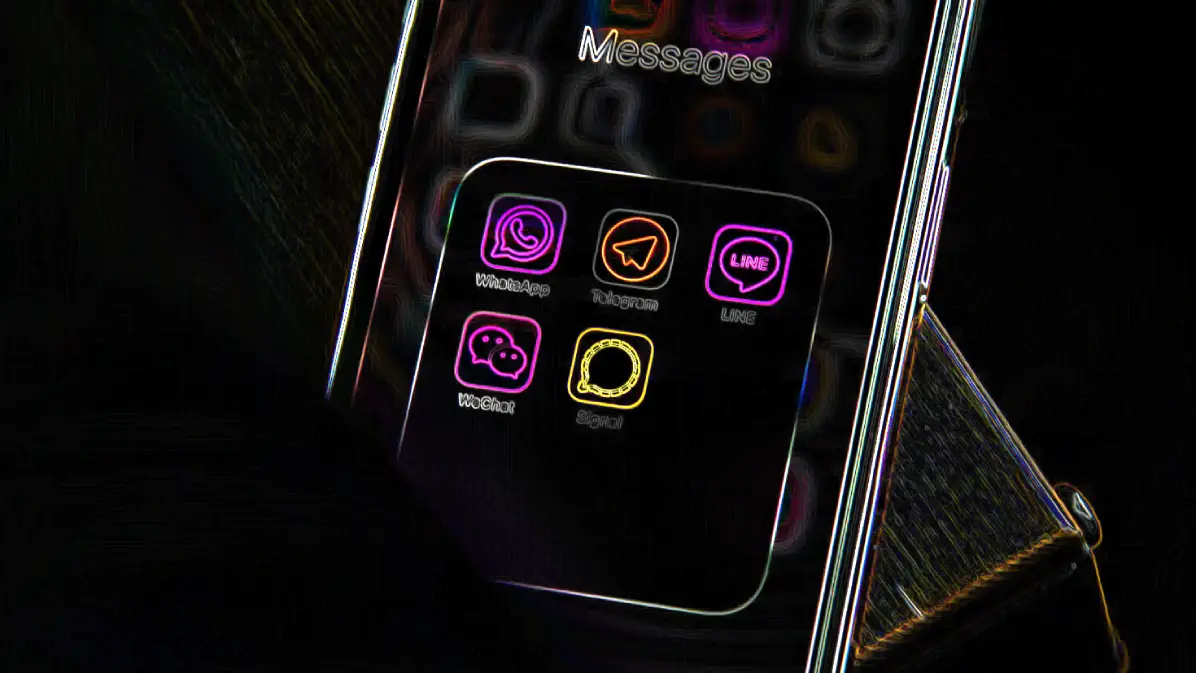Decrypting the EU's Digital Markets Act: Interop FTW or Trojan Horse?
06 Sep 2023
06 Sep 2023 by Luke Puplett - Founder


The Encryption Elephant in the DMA's Room
The European Union's new Digital Markets Act (DMA) aims to increase competition and innovation in the tech sector by placing new regulations on major platforms deemed "gatekeepers." One of the DMA's most significant and controversial requirements is mandating interoperability between messaging services.
The DMA requires that popular messaging apps like WhatsApp, Facebook Messenger, and iMessage must open up their platforms and allow users on these networks to exchange messages with each other. This interoperability is meant to benefit consumers by unifying fractured messaging channels. However, critics have raised concerns about risks to user privacy and security.
Messaging interoperability has the potential to provide more choice for users in how they communicate online. But it also faces major technical and regulatory hurdles around enabling cross-platform messaging while maintaining encryption protections. There are open questions surrounding how integration could impact platform business models as well.
The DMA's particular focus on messaging interoperability highlights the central role these services play in online communication.
WhatsApp alone has over 2 billion monthly active users worldwide. With user bases this large, the major messaging apps have become walled gardens that potentially limit consumer options. However, these platforms also employ end-to-end encryption technology to protect message confidentiality. Mandating interoperability raises tricky questions around upholding strong encryption while connecting disparate messaging networks. This central tension will shape the unfolding debate over the DMA's requirements.
As regulators and messaging platforms navigate implementation, they will need to carefully balance the consumer benefits of interoperability with the privacy imperative of encryption. There are no simple solutions, but getting this balance right will be critical to the future of digital communication.
Preserving Privacy
The DMA's interoperability provision surfaces a complicated tension between connectivity and confidentiality.
As Apple's Fred Sainz argued, "Some provisions of the DMA will create unnecessary privacy and security vulnerabilities for our users." WhatsApp's Will Cathcart said mandated interoperability could "severely undermine privacy" and safety efforts.
While Sainz and Cathcart present earnest concerns, some digital rights groups view the DMA's interoperability mandate as a Trojan horse. Though appealing to consumers seeking unified messaging, the legislation could stealthily weaken encryption through these connectivity requirements.
Under the banner of pro-consumer regulation, governments may erode encryption at the seams. This could enable increased surveillance and monitoring of private communications under the guise of progress and convenience. Calls to couple encryption and interoperability require deep scrutiny; confidentiality provides essential protection for user rights against such regulatory overreach. Companies should resist pressure to compromise on encryption, even while improving interoperability.
Alternatives like decentralized messaging may see adoption among those wary of regulatory overreach. However, banning encryption altogether would prove far worse than the DMA’s present provisions.
There are no easy answers, but the path forward must honor user privacy as the priority. With proper vigilance and oversight, unified messaging may be possible without drastic compromise to encryption. Achieving this balance remains difficult but essential.
This debate is taking place against the backdrop of messaging platforms' increasing utility as homes for AI chatbots. Services like WhatsApp and Facebook Messenger are ideal channels for chatbots powered by large language models like GPT-3.5.
For example, Zipwire has developed a WhatsApp chatbot that interfaces with GPT-3.5 to enable seamless timesheet tracking and approvals and are working on collecting sensitive identity and personal documents. It's imperitive that these chat channels are secure and trusted.
As AI chatbots proliferate, unified messaging becomes even more important for convenient access to intelligent assistants. The interplay between chat AI and ubiquitous messaging creates new opportunities, but also risks if encryption is compromised.
Charting the Future: Connecting Securely in a World of AI Assistants
While the blue bubble/green bubble debate has been raging about linking different messaging apps, Europe's Digital Markets Act (DMA) has thrust this issue into the spotlight.
It's a delicate balancing act. On one hand, making apps collaborate could simplify our online lives. On the other, robust encryption is crucial to protect our privacy.
Tech giants like Apple and WhatsApp worry that enforcing this collaboration might compromise privacy. They have a point - we must be cautious not to inadvertently weaken the security of our chats.
But there's a bright prospect ahead. Messaging apps are evolving into platforms where AI chatbots can assist us in various ways. Picture this: getting quick answers or help with tasks via messaging, perhaps even with a voice assistant.
As we move forward, we must find a way to enhance messaging without jeopardizing our privacy. This entails ensuring that regulations, tech companies, and privacy advocates collaborate. It won't be simple, but it's vital to create a secure and interconnected digital future where we can chat freely, securely, and where AI assistants act as concierges at our fingertips.
That's lovely and everything but what is Zipwire?
Zipwire Collect handles document collection for KYC, KYB, AML, RTW and RTR compliance. Used by recruiters, agencies, landlords, accountants, solicitors and anyone needing to gather and verify ID documents.
Zipwire Approve manages contractor timesheets and payments for recruiters, agencies and people ops. Features WhatsApp time tracking, approval workflows and reporting to cut paperwork, not corners.
Zipwire Attest provides self-service identity verification with blockchain attestations for proof of personhood, proof of age, and selective disclosure of passport details and AML results.
For contractors & temps, Zipwire Approve handles time journalling via WhatsApp, and techies can even use the command line. It pings your boss for approval, reducing friction and speeding up payday. Imagine just speaking what you worked on into your phone or car, and a few days later, money arrives. We've done the first part and now we're working on instant pay.
All three solutions aim to streamline workflows and ensure compliance, making work life easier for all parties involved. It's free for small teams, and you pay only for what you use.